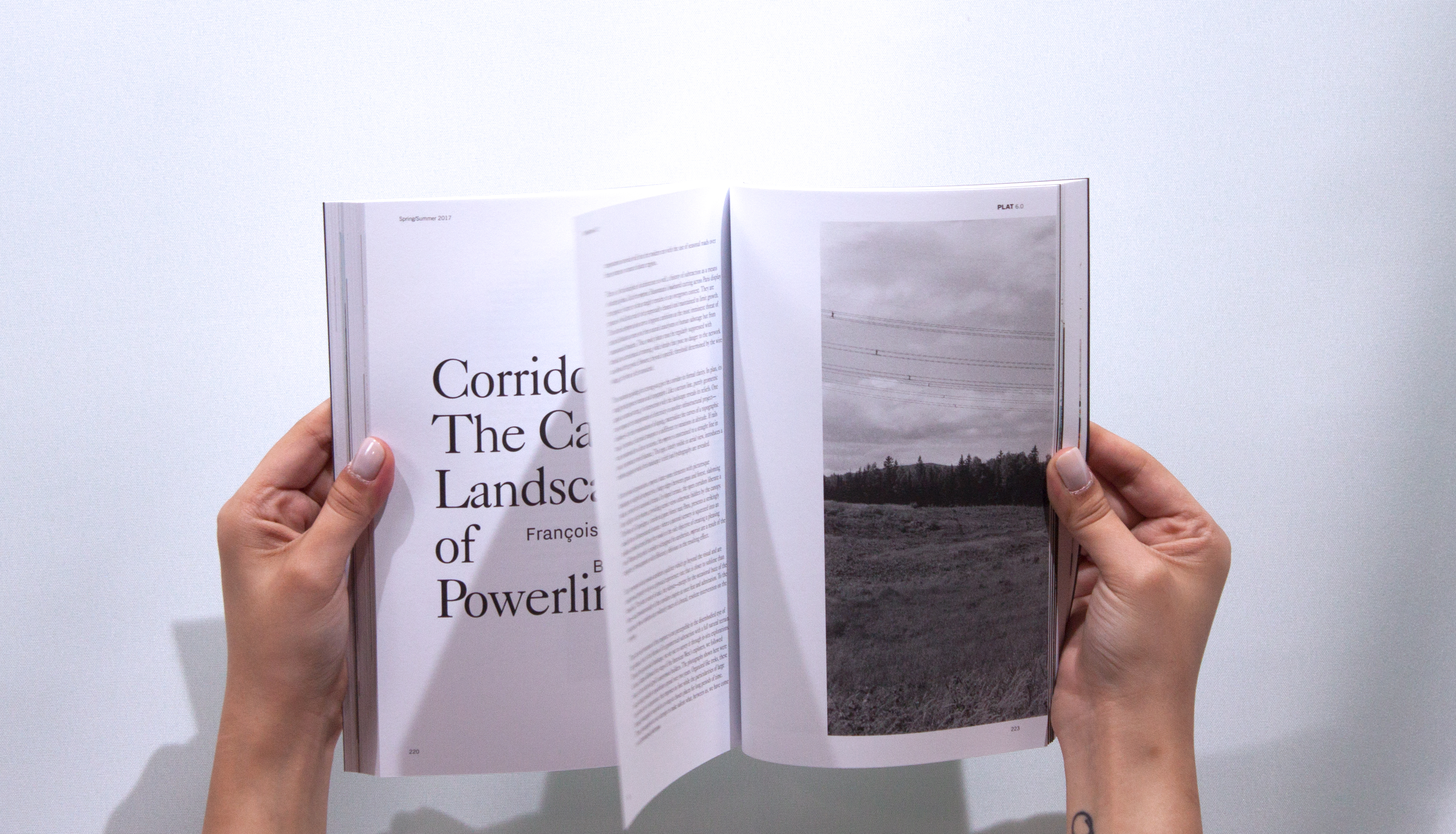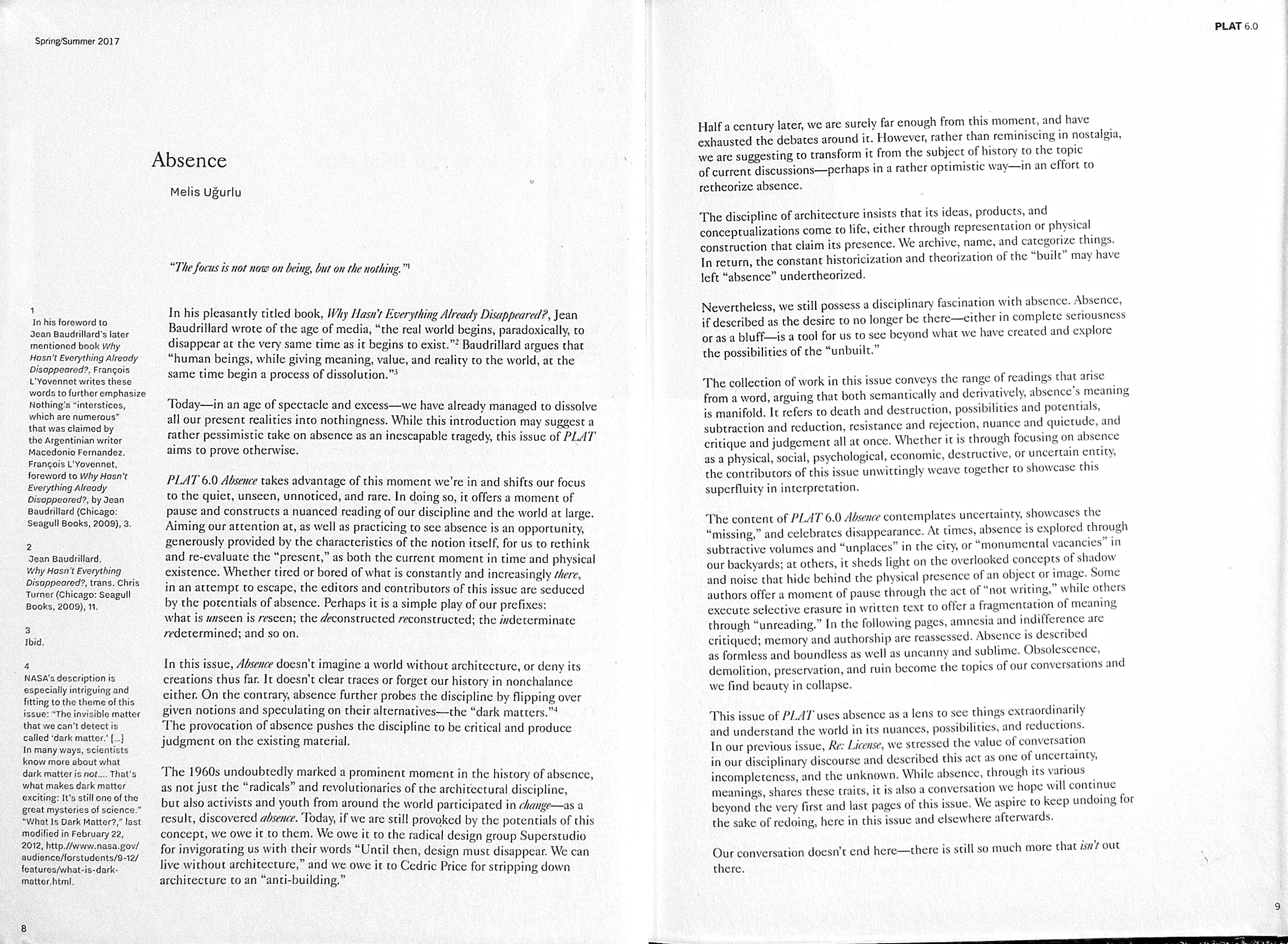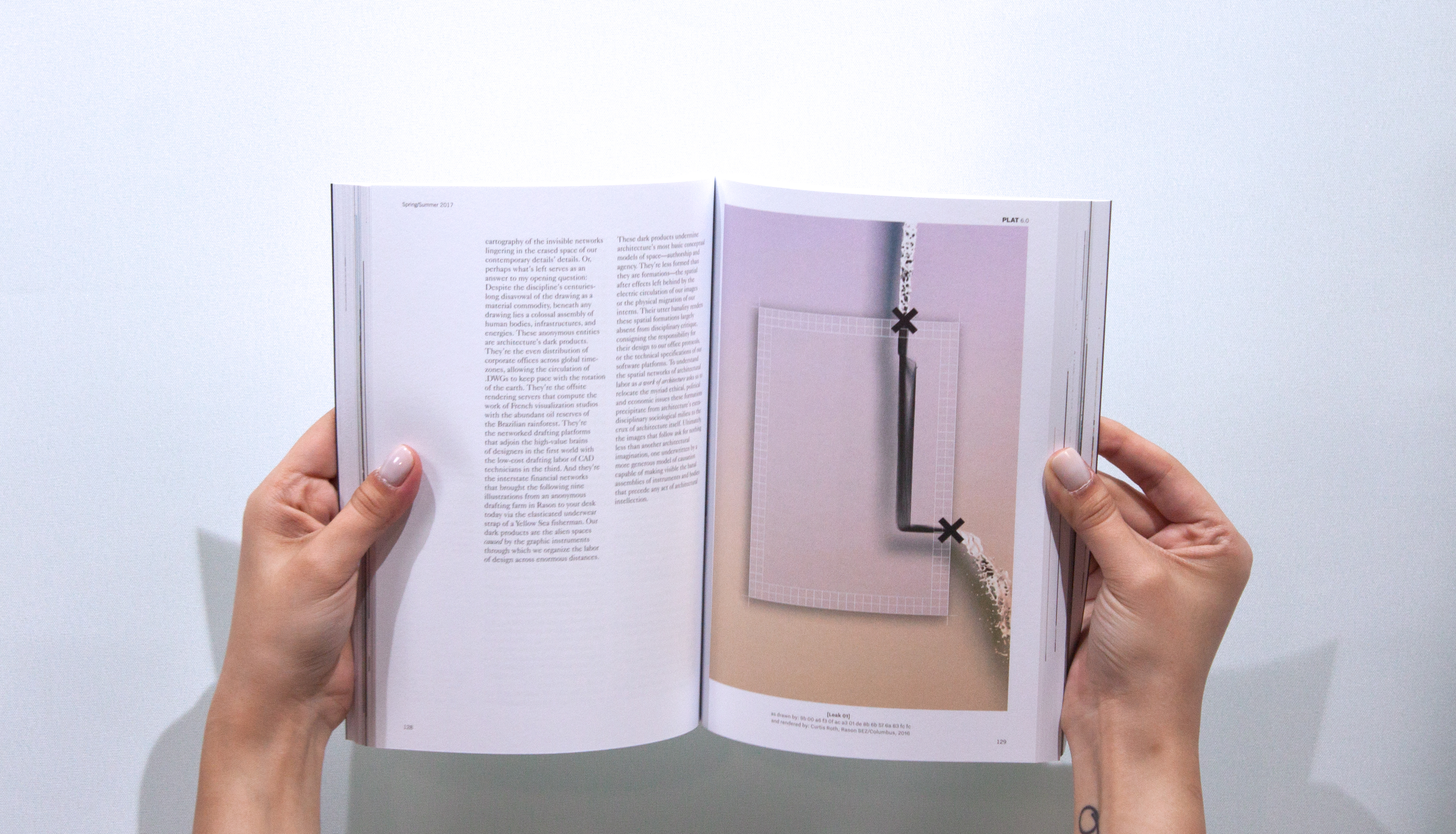PLAT 6.0 Absence
Type: Print PublicationPosition: Editor-in-Chief
Year: 2017

︎https://www.platjournal.com/issues/60-absence
In our current day and age of spectacle and excess, PLAT 6.0 Absence aims to offer a moment of pause and shift our focus to the quiet, unseen, unnoticed, and rare. This issue of PLAT constructs a nuanced reading of our discipline, arguing that the constant historizations and theorizations of the ‘built’ may have left ‘absence’ undertheorized. Whether tired, bored of, or in an attempt to escape what is constantly there, the editors and contributors of this issue are seduced by absence. Absence is used as a tool to see the world extraordinarily and re-evaluate the “present.” Perhaps it is a simple play of our prefixes: what is unseen is reseen; the deconstructed reconstructed; the indeterminate redetermined; and so on. The collection of work in this issue conveys the range of readings that arise from a word, arguing that, both semantically and derivatively, absence's meaning is manifold. Whether it is through focusing on absence as a physical, social, psychological, economic, destructive, or uncertain entity, the contributors of this issue unwittingly weave together to showcase the superfluity of interpretation.



In our current day and age of spectacle and excess, PLAT 6.0 Absence aims to offer a moment of pause and shift our focus to the quiet, unseen, unnoticed, and rare. This issue of PLAT constructs a nuanced reading of our discipline, arguing that the constant historizations and theorizations of the ‘built’ may have left ‘absence’ undertheorized. Whether tired, bored of, or in an attempt to escape what is constantly there, the editors and contributors of this issue are seduced by absence. Absence is used as a tool to see the world extraordinarily and re-evaluate the “present.”
Perhaps it is a simple play of our prefixes: what is unseen is reseen; the deconstructed reconstructed; the indeterminate redetermined; and so on. The collection of work in this issue conveys the range of readings that arise from a word, arguing that, both semantically and derivatively, absence's meaning is manifold. Whether it is through focusing on absence as a physical, social, psychological, economic, destructive, or uncertain entity, the contributors of this issue unwittingly weave together to showcase the superfluity of interpretation.

